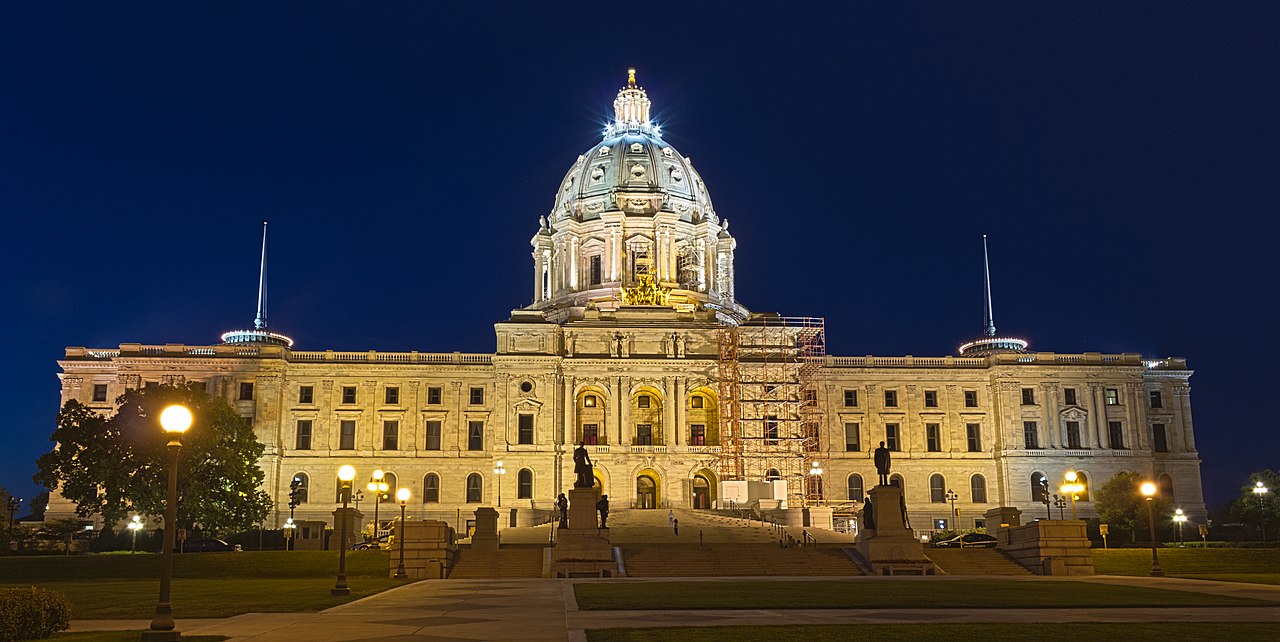Special session #1: A swing and a miss
After a largely unproductive regular legislative session, the Minnesota legislature reconvened June 12th for a special session.
The Republican-controlled Senate and the DFL-controlled House came in with similar priorities but produced markedly different legislation on most major issues. In the end, legislators were unable to negotiate their differences and left St. Paul with little to show for their efforts (See MPR, MinnPost and the Star Tribune).
Here's how FMR's top priorities fared.
Clean water bonding & #FixThePipesMN (Failed)
Every Minnesotan deserves access to clean, safe water. But that's not the case for many.
That’s why FMR joined a diverse coalition to ask legislators to #FixthePipesMN and pass a comprehensive bonding bill with at least $300 million to replace and improve aging water infrastructure to protect our environment and public health.
In addition, we strongly supported strong bonding investment in the Conservation Reserve Enhancement Program (CREP), Minnesota’s flagship land protection program that plays an important role in protecting clean water.
Negotiations on an approximately $1.35 billion bonding bill stalled out before either chamber was able to take action.
Mississippi River bonding (Failed)
As we noted during the regular session, FMR’s bonding priorities for the river called for support of one new Twin Cities riverfront project and opposition to another.
• Support — The River Learning Center ($3M): The River Learning Center will be home to the National Park Service’s Mississippi National River and Recreation Area headquarters and offer year-round, river-oriented experiences focused on the land, water and culture of the river. We need to enhance public connections to our incredible river.
• Oppose – A private concert venue on public land in Minneapolis ($20M): The Upper Harbor Terminal concert venue, which FMR strongly opposes, would use land currently in public ownership to build a privately-operated concert venue adjacent to the river in North Minneapolis. As community members continue to express opposition, we are glad that such a divisive project was not funded.
Again, as no action was taken on a bonding bill, neither provision or project advanced.
Transformational police reform (Failed)
In the House, the People of Color and Indigenous (POCI) Caucus announced an ambitious suite of transformational police and criminal justice reform measures in response to the murder of George Floyd.
Along with dozens of religious, civil rights, labor, business, health, farmer, social service and child welfare organizations, FMR supported the POCI Caucus proposals.
The House eventually combined three main legislative items (Reclaiming Community Oversight Act, Reimagining Public Safety Act, and Reforming Accountability Act) into a single reform package (SSHF93) that passed 71-59.
In contrast, the Senate’s slimmed-down version of reform provisions included just five proposals, leaving out a number of reforms that advocates rightly consider essential to meaningful reform.
It soon became clear that the gulf between the two chambers was too large to bridge on short notice, and no final action was taken.
The Environment & Natural Resources Trust Fund (A mixed bag)
The House renewed legislation to distribute $64M in money from the Environment & Natural Resources Trust Fund (lottery money for the environment) and was able to pass it out of committee on a party-line vote.
However, the language was included as a part of a larger House Omnibus Environment Bill (SSHF28) despite our objections.
That bill, which was the subject of a deep political divide with the Senate during the regular session, did not receive a floor vote in the House and had no companion bill in the Senate.
While this year’s environmental trust fund bill failed to pass, legislators did agree to separate language providing an extension for existing fund-backed projects that have been disrupted by the COVID-19 epidemic.
The House version (SSHF37) passed 127-7, and the Senate companion (SSSF48) passed unanimously.
Community rebuilding (Failed)
The House initially advanced a series of individual bills designed to rebuild areas of the Twin Cities damaged by recent fires and vandallism. The proposals were eventually combined into a single bill (SSHF 132) and dubbed the PROMISE Act (Providing Resources, Opportunity and Maximizing Investments in Striving Entrepreneurs).
We were pleased to see the House pass the bill by a 74-53 vote. However, the Senate did not act of the legislation and no final action was taken.
COVID-19 relief (Failed)
COVID-19 is having an immense impact on all of us, but especially communities of color, as deaths disproportionately affect Black and brown communities across the nation. That’s why investing COVID-19 relief funding now is so important.
Initially, the Senate passed a bill (SSSF47) to distribute $841 million in federal COVID-19 relief funds. The House later amended their version of the same bill (SSHF128) to include several items from the governor’s supplemental budget and passed it off the floor 77-55.
Since the bills were now different, a final version needed to be agreed upon. However, the House and Senate were not able to agree on a final bill in time, and no action was taken.
Looking ahead
Many important issues remain unresolved, and we are hopeful they will be addressed during another special session.
As the governor's current emergency powers expire in mid-July, he'll need to call another special session to extend them.
We look forward to working with FMR members and River Guardians advocates, as well as our conservation partners and BIPOC allies to advance these important initiatives during a second 2020 special session.
Join the River Guardians
We count on over 2,000 River Guardians to help us shape legislation to protect the Mississippi River. We hope you'll take a moment to join us as we head into an upcoming special session.
We'll let you know when important river issues arise and help you quickly and easily let your legislators know your thoughts.
River Guardians are also invited to special events (including happy hours) to learn more about important legislative and metro river corridor issues and to toast our accomplishments.
